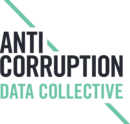We need to build an integrity infrastructure for COP

For the past few months, ACDC has been scouring private jet flight records, foreign agent filings, oil industry reports and social media profiles to understand the risks created by Azerbaijan’s dual role as host and president of the upcoming UN climate conference, or COP 29, in Baku.
Full report: COP Co-Opted? How Corruption and Undue Influence Threaten Multilateral Climate Action
Azerbaijan’s selection as COP 29 host in December 2023 raised immediate red flags in the anti-corruption and climate communities. The world urgently needs to transition away from fossil fuels, and any COP dominated by the interests of oil and gas companies is destined to fail. Azerbaijan’s track record made a number of risks immediately apparent.
President Ilham Aliyev’s autocratic and authoritarian government has shown no serious signs of liberalizing since US State Department officials described the country in 2010 as “run in a manner similar to the feudalism found in Europe during the Middle Ages: a handful of well-connected families control certain geographic areas, as well as certain sectors of the economy.” Taken together, several NGO indices rate Azerbaijan as a highly corrupt electoral autocracy with heavily suppressed media and civil society.
On top of that, in recent years Azerbaijan has been accused of illicit influence operations across Europe and in the US. Earlier this year Texas Senator Henry Cuellar was indicted for allegedly accepting bribes from Azerbaijan in return for boosting the country in Congress, among other alleged crimes. Cuellar and his wife deny all the charges.
Moreover, and especially troubling for the host of a climate conference, Azerbaijan’s state-owned oil company, SOCAR, is the country’s main source of revenue and a central pillar of the state apparatus. President Iham Aliyev himself served as an executive there while his father, Heydar Aliyev, was president. SOCAR even appears as a source of funds in some of the alleged international bribery cases involving Azerbaijan.
After the Center for Climate Reporting and Global Witness revealed that the last COP host, the United Arab Emirates (UAE), used its COP presidency as a diplomatic platform to pursue new oil and gas deals, we wanted to understand the risks of similar oil industry capture and undue influence occurring again.
The results are published today in a new report with Transparency International (TI).
The report describes in detail how Azerbaijan appears to be co-opting the summit to serve interests that should never dominate the organization and negotiations of a multilateral climate conference.
And while Azerbaijan may be an extreme case – a perfect storm of oil industry influence, corruption, kleptocracy and authoritarianism – its activities as host of COP 29 illustrate systemic vulnerabilities in how UN climate conferences are arranged.
The secretariat of the United Nations Framework Convention on Climate Change (UNFCCC) doesn’t evaluate prospective hosts’ commitment to the goals of the Paris Agreement, which the summit is meant to help achieve. Nor are human rights and good governance taken into account. Once a country is selected as host, there are no robust guardrails to stop the conference from being abused for personal enrichment by government cronies, fossil fuels deal-making or greenwashing.
In the case of Azerbaijan, our report argues, these vulnerabilities are being exploited in three key ways.
Personal enrichment
With power and wealth in Azerbaijan concentrated in the hands of regime loyalists, the report finds clear indications that companies tied to the family of President Ilham Aliyev stand to benefit from the organization of COP 29. Several companies linked to the Aliyevs, including his wife’s family’s sprawling conglomerate PASHA Holding, have been announced as “Green Zone Partners,” or corporate sponsors of COP 29. This gives the companies a valuable marketing platform to promote unproven sustainability credentials on the world stage. Another such partner is SOCAR’s renewables subsidiary, which was launched just weeks after Azerbaijan secured the COP, and capitalized with less than two per cent of SOCAR’s net profits from 2023.
Abzas Media, an independent investigative platform whose staff are in exile after a crackdown by authorities, have revealed that a $5 million no-bid contract for COP 29 guest accommodation has been awarded to a resort owned by President Aliyev’s former son-in-law, the pop-star and real estate developer Aras Agalarov. Agalarov announced the contract during a summit held at his hotel that was attended by three Azerbaijan government ministers who sit on the COP29 Organising Committee. Other investigations by Abzas Media have alleged that members of Azerbaijan’s COP 29 team awarded government contracts to companies linked to their family members. This includes the lead negotiator for COP 29.
Oil Industry Capture
The COP 29 president-designate is a former executive at SOCAR, and SOCAR appears to be closely involved in the COP, with its president and members of its supervisory board helping organize the summit. Worryingly, SOCAR’s president has already been seen mixing COP and company business while signing a new cooperation agreement with Eni, the Italian state-owned energy company.
With the help of one of the world’s premier PR firms, Azerbaijan has been promoting its COP presidency as an opportunity to bring the global North and South together at the negotiating table to secure much-needed new climate finance. But the country is also positioning itself as a different kind of conduit: one bringing fossil gas from the Caspian Sea and surrounding region to Europe. Our report describes SOCAR’s plans to expand its business in Turkmenistan, Kazakhstan and Iraq in order to highlight high-risk areas for fossil fuel deal-making during COP 29. In addition, SOCAR’s international partners may take advantage of the COP’s known vulnerability to oil industry lobbyist attendance to support the host country’s campaign for continued investment in new fossil fuel projects.
Greenwashing
Azerbaijan has made much of its renewable energy plans since securing the COP. However our report finds that plans for some of Azerbaijan’s renewable energy projects risk further entrenching the market position of SOCAR and its international oil major partners: some projects seem designed to provide cheap renewable-generated electricity to oil and gas infrastructure; the terms of reference for companies building offshore wind plants require them to have experience in hydrocarbon extraction from the Caspian.
In a country where independent media and civil society organizations are heavily suppressed and unable to fulfill their critical watchdog function, the COP 29 organizers appear determined to control the narrative around the event. This includes establishing an “NGO Coalition” that features pro-regime organizations, and appears to follow a playbook of distracting from legitimate criticism. In the past week, two separate investigations have revealed how Azerbaijan is using bots and fake accounts on social media to forefront the government’s own agenda around COP 29.
The COP 29 organization and other businesses and organizations named in our report did not respond to requests for comment on our findings.
It is essential that the UNFCCC acts quickly to address the shortcomings revealed by this report. Countries committed to making the goals of the Paris Agreement a reality must work together to strengthen the procedures and processes around COP.
The next COP host, Brazil, has joined the UAE and Azerbaijan in a “Troika” of countries hosting COPs 28, 29 and 30. Brazil is its region’s biggest oil exporter and Petrobras, the state-owned oil company, has been caught in massive corruption scandals in the past.
But there is also hope. President Lula has announced a “global ethical stocktaking” which would be the perfect opportunity to address the issues raised in our report. Brazil has also used its G20 presidency to call for more attention on the links between corruption and climate change.
Our report offers a roadmap for preventing COP from being co-opted.




